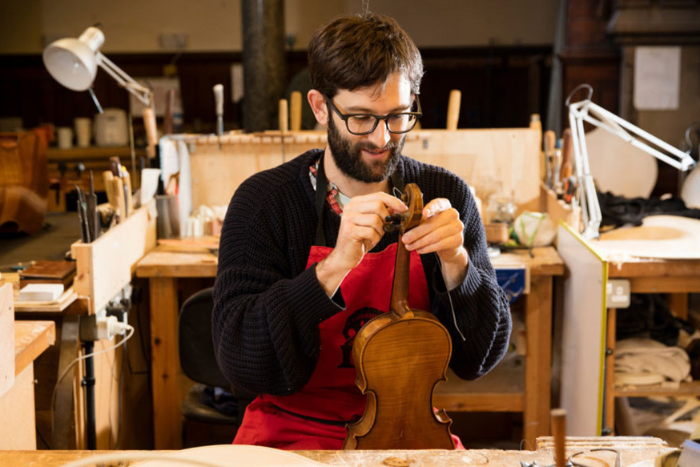
Threat to unique courses making musical instruments
Thousands of people have signed a petition against the closure of courses that teach students to make musical instruments.
Protestors against the move to withdraw the courses at the School of Instrument Craft claim it could have a devastating effect on the global music industry.
The school is at Newark College, which is part of the Lincoln College Group – on May 7 the latter announced there would be no new intake of students onto the musical craft courses in 2025 and 2026.
The school has been running at a substantial loss for the last three years and the college is aiming to reorganise the programme and replacing current courses with those that have to be paid for, cutting off access to student finance.
A petition in change.org started by current foundation student Floyd Elgar had reached almost 7,000 signatures when this article was published. He said the courses for piano technicians and woodwind specialists and for making violins and guitars, had created a hub for musical craftmanship.
“The loss of these courses will have a profound and devastating effect on not only the instrument making community, but also on the global music industry as a whole! Put simply, if there are no instrument makers, there are no instruments.
The petition has been signed by Dahlia Lee, whose son Oskar is on the foundation violin-making course and had been accepted on to the degree course that has now been closed.
“It’s a huge deal as it’s (the school) is world renowned and the only one in the country.”
Lincoln College CEO and Principal, Mark Locking, said: “The School of Instrument Craft has a strong history and is incredibly important to the Lincoln College Group. It is renowned internationally and has earned that reputation by being the springboard for many respected craftspeople”.
Melanie Watson, Assistant Principal, added: “The MIC introduced the degree programme, which covers four unique pathways in September 2017 to help address declining numbers which were further exacerbated by Brexit and subsequently the effects of Covid.
“For the last three years the School of MIC has run at a substantial loss. By redesigning the programme to find ways for more practical time and greater craft skills it will better meet student and employer needs and improve financial stability.
“It has also been communicated by expert tutors that the degree being replaced by a full-cost programme would actually be a better fit with the industry and students’ needs as it means less theory and more time ‘at bench’ which teaches our students a wider set of skills.”
“In this regard we have been exploring how we can deliver the same important course content through other more flexible costing options.
“This does mean that learners will not have access to student finance and so we are all keen to work with them to design new delivery models but also encourage companies or individual entrepreneurs to support the school with sponsorships and funding.
“The College remains committed to the small amount of affected students and to current learners on their Level 5 and Level 6 courses will be supported, with no change to their courses.
At present, there are four students of our own who are being directly affected by a potential single course closure as well as 13 others who have secured places too.
“We empathise with the current cohorts of students who have justified concerns regarding their contemporaries’ future careers and prospects.
“These alternatives are being explored, and we recognise that these courses are held in high regard by the town and internationally through the music world.”
